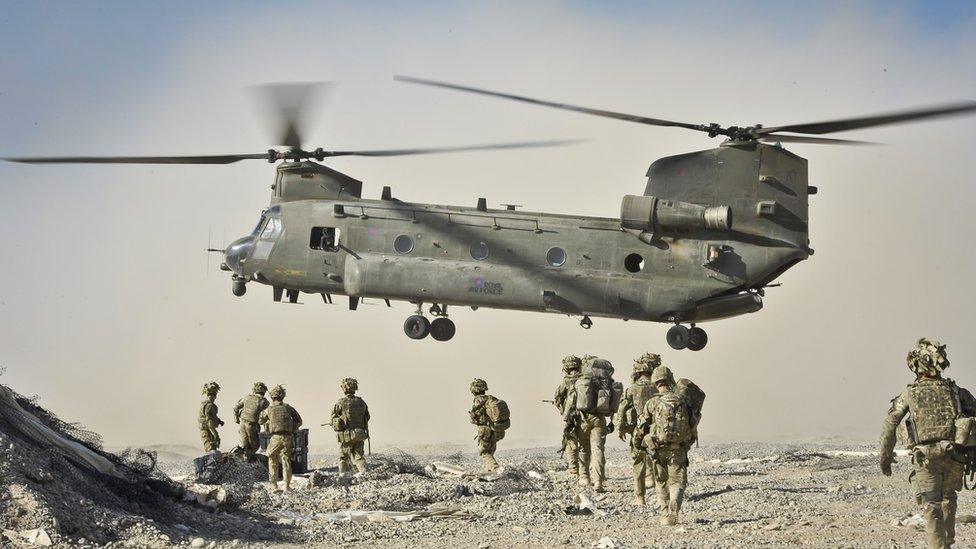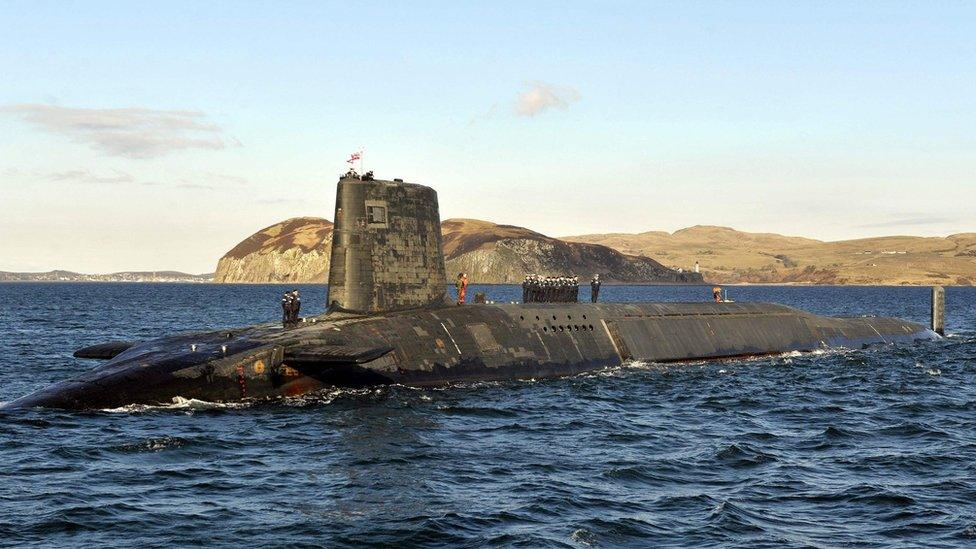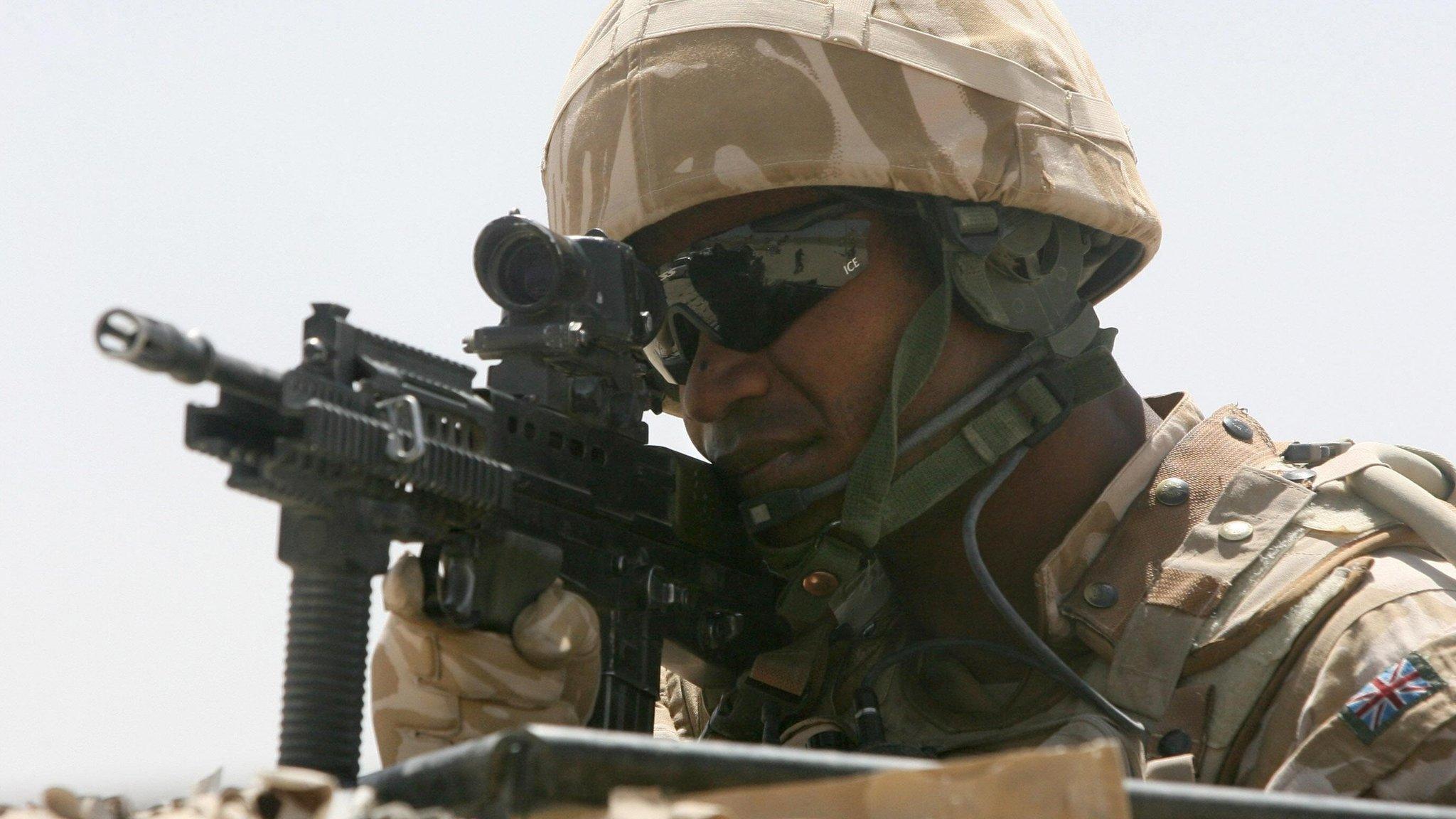Ministry of Defence 'facing extra £700m costs post Brexit'
- Published

The UK pays the US $10 billion a year for defence products
The Ministry of Defence is facing extra costs of up to £700m a year following the UK's Brexit vote, experts warn.
The Royal United Services Institute (RUSI) says this is due to the fall in sterling where military equipment purchases have been made in US dollars.
After the referendum, the pound fell to its lowest level against the dollar in more than 30 years, making imports from the US more expensive.
The MoD said real terms spending on defence was rising year on year.
Prof Trevor Taylor, from the RUSI think tank, told BBC Radio 4's The World at One that the extra costs could lead to a "budget black hole", presenting a serious problem for the UK's defence stance.
'Perfect storm'
Sterling has been steadily falling in value as the referendum result and the Bank of England's efforts to shore up the economy have pushed investors into selling the pound.
The former head of the Royal Navy and Labour peer Lord West described the issue as a "perfect storm" for the MoD.

The MoD also has to buy spares for their existing defence systems such as Trident missiles
A source with experience of the issue at a high level of government said it could push an already stretched budget "to breaking point".
But another former insider, who did not wish to be named, argued sterling could well recover and the issue was merely a "headache" for the MoD.
Prof Taylor said the UK paid the US about $10 billion a year for defence products.
The MoD, he said, had already committed to buying nine P8 maritime patrol aircraft, 138 F-35B aircrafts and 50 Apache aircraft to replace the existing ones, all from the US.
National priorities
On top of this, the MoD will also have to buy spares and support services for their existing aircraft and defence systems such as Chinook helicopters, Trident missiles and the AWACS surveillance system, he added.
The UK has committed to spending 2% of GDP on defence, a minimum set by Nato.
The chairman of the House of Commons defence select committee, Julian Lewis, a Brexit supporter, said defence had "fallen too far down the scale of national priorities".
Lord West says the defence budget faces a "perfect storm"
Dr Lewis said the 2% of GDP was "nowhere near where we need to be spending" and argued the figure should be more like 3%.
Lord West criticised the government for delaying the purchase of frigates; a decision he said would push up their costs.
The former head of the British Navy said the 2% figure was "a good figure", but that if the UK's GDP shrinks, this would result in a reduced spending figure.
'Headless chickens'
Maj Gen Tim Cross, a retired British Army officer who supported the Leave campaign, acknowledged that defence spending overall was "struggling".
But he called for time to be spent assessing the situation post-Brexit, rather than "running around like headless chickens".
In a statement, the MoD said it took "appropriate financial precautions in all its procurement contracts" and "remained committed to the procurement set out in last year's defence review".
- Published10 July 2016

- Published12 June 2016
